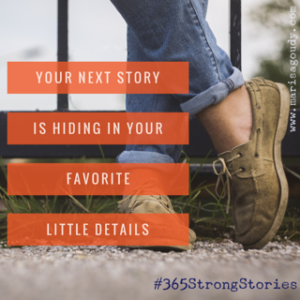
BLOG
It's Time to Tell Stories That Are Rooted In the Earth
Right now, I don’t know how to tell a story that isn’t rooted in the soil, soaked in the rain, singed by the fires, and aware of the climbing temperatures. I may not be writing about the climate directly, but I find I am always in conversation with the Mother, with the Earth, with all the unseen interactions between humans and nature.
Last night, I helped my dad put together a slide presentation for his condo association. He’s passionate about bringing in solar power to fuel their community energy needs.
This past weekend, my husband and I looked out on our beloved backyard and wondered together about how we could make our family’s life more sustainable. We’re thinking about changing the way we buy and use electricity, how we can change our eating habits, and what food we can grow in the years to come.
As headlines about ecological catastrophe and systemic climate change vie with the latest Covid spikes and variants at the top of every newscast, these conversations seem inevitable and necessary.
We all need to talk about our relationship with the land, with our resources, with survival, with creating a world where our children and their someday children can thrive.
Right now, I don’t know how to tell a story that isn’t rooted in the soil, soaked in the rain, singed by the fires, and aware of the climbing temperatures.
I may not be writing about the climate directly, but I find I am always in conversation with the Mother, with the Earth, with all the unseen interactions between humans and nature.
When we were visiting Maine last week, my aunt gave me three plants.
A white sagebrush from my mother and a periwinkle from my grandmother that grew beside the houses on Cape Cod where I grew up. Both homes have since been sold. And then, a primrose that my great aunts grew on Prince Edward Island. That place is still in the family, but it’s not possible for us to cross the border to see the Canadian cousins right now.
Three plants from forbidden gardens, from patches of land that have become inaccessible for one reason or another.
Three living beings that I can tend and touch, cultivated by beloved gardeners I can only visit in my memories.
Three delicate root systems I can protect and pray over, that (hopefully) will help me keep my family history alive.
How’s your relationship with the plants and soil that surround you?
I find myself wandering between my flower patches right now. I talk with the trees that have been here for decades longer than our house. I check on the perennials I have planted in my time here. I welcome these new plants and celebrating the bittersweet legacy of growth and change they represent.
This sense of finding solace and purpose amongst the blooms and blossoms is new to me. I’ve tried to make the place look pretty for the thirteen years we have lived here, but I usually tend to lose interest by August. Luckily, when September rolls around I can stick a new crop of mums in the ground to cover all the worn summer blossoms.
It’s different this year, however.
My new devotion to this rocky soil and the flowers I coax from the dry earth is inspired by my increasing awareness that our global environment is in trouble, surely. There’s something more to it, though. Something more personal and even more primal.
It was my husband who helped me see another dimension of the story. During our conversation about the future of the planet and how we can be better citizens of Earth, I marveled at how my relationship with our nearly two acres of garden, lawn, and forest had deepened over time.
“Isn’t that part of becoming the crone?” he asked. “The wise woman?” (Why yes, that guy I married has read—most of—my book.)
I write about the way we’re princess, queen, and wise woman through life in The Sovereignty Knot, of course. I write about how the concerns of the queen shift to encompass the awareness of the wise woman. The story becomes most true as you live it, however.
As my girls grow older and my business matures, I find myself switching gears. I don’t have to engage in constant mothering and I’m finding I’m less concerned with being the in-control queen. At 42, though I certainly have lots of queen energy in my life (and princess energy too), I am consciously moving into the wise woman’s sense of being present and receptive, into the crone’s sense of conscious care and divine surrender.
This planet needs us all to step into our wisdom in new, beautiful, challenging ways.
We’re being called to live a bolder, wilder, more compassionate story. We need to focus on the plants outside our door as we think about the ecosystems that enable us all to breathe. We need to set down the old ways of being and open our arms wide to a new devotion to the world as-it-is.
We’re going to need to get more centered and more Sovereign than ever so we can make the choices that support the human and the non-human collective.
As I’ve said before in many spaces, Sovereign is never meant to be a synonym for selfish. Instead, it’s an interconnected system of sovereign selves that can transform and heal this world.
Let’s be sovereign beings for the beautiful, burning sovereign world. One seed, one story, one wise act of creation at a time.
Stories create your legacy. Stories connect you the now.
 We tell stories to understand the past. We tell stories to anchor you in the moment. We tell stories to transform the future.
This is the story behind Because He Was a Writer: A Memorial Day Story.
We tell stories to understand the past. We tell stories to anchor you in the moment. We tell stories to transform the future.
This is the story behind Because He Was a Writer: A Memorial Day Story.
It's also an invitation to tomorrow's Story Triangle webinar - the free online event that will help you understand the inner workings of story so you have insight into that superpower you already possess: storytelling.
Your Next Story Is Hiding In Your Favorite Little Details
 Some people remember exactly what everyone ordered during that special meal. Others have a vivid recall for the phase of the moon on an important day.
Personally, I have fashion memory. I can tell you exactly what I wore from head to toe the night I met my husband. (And yes, I still wear that denim jacket twelve years later.)
Some people remember exactly what everyone ordered during that special meal. Others have a vivid recall for the phase of the moon on an important day.
Personally, I have fashion memory. I can tell you exactly what I wore from head to toe the night I met my husband. (And yes, I still wear that denim jacket twelve years later.)
The shoes I wore to my unexpected date with destiny just hit the bottom of the trash can, however. During the last big rain I realized that the cosmetic issues on the soles were in fact structural deficiencies. Turns life is too short to wear leaky shoes - even if they do have great sentimental value.
The details make the stories
What little things do you tend to notice? Those observations form your unique point of view. They allow you to tell the authentic story that only you could tell.
My husband wouldn’t remember my outfit and he certainly wouldn’t remember what he’d worn himself. But now, the story of how that redhead at the end of the crowded bar in New Paltz knew there was something about that guy with the sweet smile - even though he wore a tie-dyed Harley Davidson shirt, tapered legged jeans, and boat shoes - that’s essential to the “how Mike and Marisa met” legend.
Your favorite details also inspire your stories
The details that are special to you can also help you decide which stories to tell.
Though my first date shoes are long gone by now, I was reminded of them when I tripped over another pair of sneakers that have been sitting in middle of the hall for much too long. If “the clothes make the man” is true, then apparently “the shoes make the memories” is valid too.
What little details stand out to you? How can you make a practice of noticing these details and put them to work in the stories you write?
The Shame of Shushed Story
“Oh honey, let’s not tell that story.” The words flowed easily from my lips but they were terribly hard to hear, hanging there in the air. I’d delivered them as kindly as I could in the voice of a woman with too many worries and too little sleep. All I wanted was the oasis of a quiet shower and to make it to my first cup of coffee before anyone pulled hair or screeched or required a bandaid.
But I know that silence and distrust and disconnection are born of distracted admonishments. This was a tiny sin that hinted at a deeper darkness.
My six year-old was remembering the beach house that the family rented for several summers. Her memories of eating a dozen clementines gave way to remembering when one older family member had fallen and knocked out a tooth.
I don’t like that memory. It was upsetting and it wasn’t pretty. I felt the pain and the worry of that Cape Cod morning. The guilt that I hadn't been very helpful at the time was (my excuse was morning sickness, but that seems paltry now). None of these thoughts were going to ease me into what was going to be another challenging day, so I shushed her and kept moving.
As I dive deep into what it means to tell stories, I'm learning just as much about how to receive and keep stories. Stories need to be held and reviewed when they bubble up. When they are stifled they become the monsters of shame and doubt and fear.
In trying to protect myself from unresolved hurts, I create new ones for my daughter. In trying to stifle the pure, spontaneous sharing of memories, I am creating new ghosts that are bound to be much more ghoulish the next time they come around.
I am a storyteller. I ask people to walk into the shadows with me so that we can appreciate the light. That means I also need to allow others to tell me their stories - even when I find them unsettling or inconvenient, even when I want to wish the memories away.
Learn how to tell your own stories with greater sensitivity and awareness. Join the free online class, The Story Triangle, on April 5.




